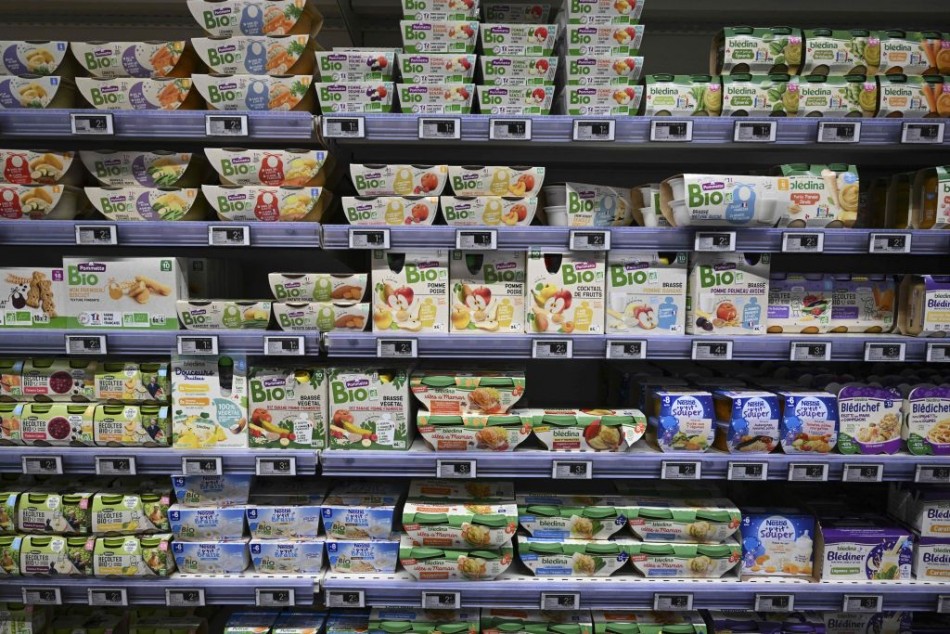FDA Intensifies Efforts in WanaBana Recall as Lead Poisoning in Cinnamon Apple Purée Increases

In a pressing health crisis, the Food and Drug Administration (FDA) is heightening its response to the surge in lead poisoning cases associated with WanaBana's cinnamon apple purée.
The alarming uptick has raised widespread concerns about the safety of baby food products, triggering recalls, legal actions, and renewed scrutiny on the FDA's oversight of the industry.
The FDA is grappling with a concerning escalation in lead poisoning cases, primarily affecting children aged 1 to 4 across 25 states.
Reports indicate that 52 cases have been documented, all potentially linked to the consumption of WanaBana's cinnamon apple purée.
FDA Investigates Rising Cases of Lead Poisoning Linked to WanaBana's Cinnamon Apple Purée
The product, initially marketed as a healthy transition from breastmilk to solid foods, is now under intense scrutiny as the FDA launches a comprehensive investigation into the root cause of the lead contamination.
Parents nationwide, previously trusting WanaBana's seemingly healthy product, are now facing the repercussions of lead poisoning in their young children.
Notably, a sample of the cinnamon apple purée purchased at Dollar Tree and tested by the FDA revealed lead levels 200 times higher than the agency's proposed guidance.
The FDA's stern warning against purchasing the product further underscores the severity of the situation.
Concerns are not limited to individual cases; they extend to the broader question of baby food safety and the efficacy of current regulatory measures.
WanaBana Recall and FDA's Vigilant Response
WanaBana, based in Florida, issued a recall for all lots of its cinnamon apple purée on October 30. Following this, additional recalls were announced on November 9 for lots sold under different brand names.
Despite these efforts, the FDA reported on November 22 that the recalled product remained on Dollar Tree shelves in various states.
This revelation has intensified the collaborative efforts between WanaBana and the FDA to investigate the source of the contamination.
The FDA spokesperson emphasized that the agency is meticulously screening incoming cinnamon shipments from multiple countries, focusing on Ecuador, where the applesauce pouches are manufactured.
Challenges in FDA's Ongoing Oversight of Baby Food Safety
WanaBana's lead-contaminated product has accentuated the persistent challenges the FDA faces in regulating the safety of baby food.
Past incidents, such as the recall of powdered baby formulas and revelations of heavy metals in commercial baby food, have already spotlighted the need for more stringent regulations.
Despite the FDA's commitment to finalizing guidelines aimed at minimizing harm to children by early 2025, skepticism lingers among experts.
They argue for immediate and concrete actions to protect infants from potentially harmful substances in baby food.
The FDA's intensification of efforts in the WanaBana recall underscores the urgency of addressing lead poisoning cases linked to cinnamon apple purée.
As parents grapple with the aftermath of unwittingly exposing their children to harm, the broader implications for the regulation and safety of baby food in the United States are coming under renewed scrutiny.
The collaborative investigation between WanaBana and the FDA is now a focal point in ensuring the accountability and safety of products intended for the most vulnerable consumers.
Related Article: Landmark Verdict: Illinois Jury Finds Major Egg Producers Guilty of Price-Fixing Conspiracy Spanning 2004-2008
© 2024 ParentHerald.com All rights reserved. Do not reproduce without permission.
